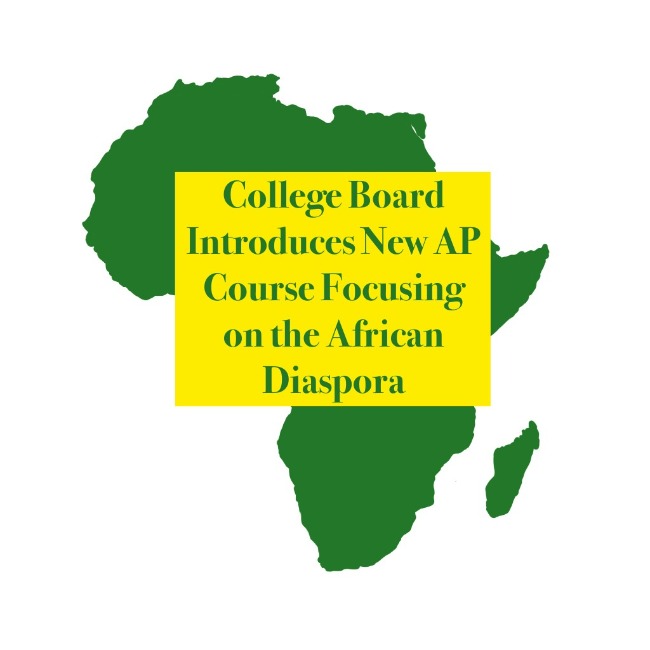College Board is introducing a new Advanced Placement (AP) course focusing on the African diaspora. The news comes as racial tensions escalate in the United States, but the course has been in the works for a while.
The week of Sept. 7 College Board, the national organization that runs AP courses and the Scholastic Assessment Test (SAT), announced it would introduce a new program focusing on the African diaspora.
Diaspora is a term used to refer to people settled in different areas than their ancestral homeland. The African diaspora are the people who no longer live in their ancestral homeland of Africa. Most of this movement is due to slave trades taking place from the 1500 to 1800s.
The curriculum for the course covers the people of African descent displaced due to the slave trades and other related historical moments. It expands from the traditional concepts taught in Introduction to African American Studies courses. The course is designed to answer two main questions.
“Can a widely available college-level curriculum on the Black experience boost Black students to greater academic success in AP programs, where they are historically underrepresented? And can other students, whether white, Latinx or Asian, deepen their personal racial awareness by studying an Africana curriculum?” (Washington Post)
One student at Northwood believes the course would be beneficial for both Black students and students of other races.
“I think it’s great that College Board is allowing high school students to learn about Black culture beyond what little is learned about us [Black people] in history classes,” says senior Nia Daib. “It’s super important for people to be exposed to the numerous Black cultural movements, and though it’s something that should’ve been available for high school students to learn way before now, it’s great they’re trying to educate people in response to all of the unrest going on in our American society. I encourage all Black students to consider taking the course because a lot of us don’t know much about our [Black] history, and I definitely encourage Caucasian students to take it as well in order to better understand the struggles and triumphs of the people they attend school with. Hopefully, this course will allow mutual understanding to develop in communities where they previously didn’t exist.”
The course’s release comes after a three year pilot period. Students from 11 schools across the United States with different racial demographics tested the program.
The course will be available through College Board’s AP Capstone Program. This program includes AP Seminar and AP Research classes. These classes are not based on a specific subject. Instead, the program allows for investigation of multiple topics. Students can choose to explore topics relating to other AP classes they are taking including the topic of the African diaspora.
Currently, Northwood does not offer the AP Capstone Program. In order to be approved for this program, Northwood would need to go through the application process.
“Northwood is definitely open to exploring offering the AP Capstone Program,” says Dr. Walston, Northwood’s principal. “However we will need to have teachers who are interested in teaching the curriculum and overseeing the Capstone process. Northwood also offers a plethora of Advanced Placement courses which may overshadow the need for an AP Capstone Program.”
Dr. Walston also notes that “enough student interest will need to be evidenced in order to offer the course.”
Some Northwood students are interested in taking the course after learning what the course discusses and focuses on.
“I think this course would be super beneficial to me and to other students because I believe it’s important to learn about the history of different cultures and what they have been through,” says junior Caroline Shi.
In the months following the death of George Floyd, the push for more Black stories to be told has increased. Some high school students in the United States have demanded that high school history and English classes incorporate more Black narratives. The release of the AP African diaspora course is on eof the results of this push.
“Even if the course is not specifically about my ancestry, I think that it is always beneficial to learn about history,” says senior Virgina Villanueva. “Especially if it’s a part of history that we’re not necessarily exposed to as much because it makes us that much more aware of the people around us and the world that we live in.”



